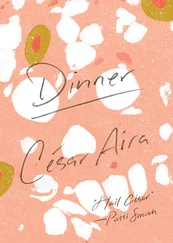It was then, when the action rushed toward a resolution, after the exasperating teatime dialogues, that the extent of my fiasco fell on me like a mental atomic bomb. Once again I had submitted to nonsense, to the frivolity of invention for invention’s sake, resorting to the unexpected as if it were some kind of deus ex machina! Again I had squandered the wise ancient advice adorning the frontispiece of my literary ethic, “Simplify, my son, simplify!” I have managed to write a few good things by following, quite by accident, that advice. What a waste! Only through minimalism is it possible to achieve the asymmetry that for me is the flower of art; complications inevitably form heavy symmetries, which are vulgar and overwrought.
But my mania — to be constantly adding things, episodes, characters, paragraphs, to be constantly veering off course, branching out — is fatal. It must be due to insecurity, fear that the basics are not enough, so I have to keep adding more and more adornment until I achieve a kind of surrealist rococo, which exasperates me more than it does anybody else.
It was like a nightmare (the mother of all nightmares) to watch the living defects of what I had written materialize in front of me. Though my punishment was a kind of poetic justice, because from that point on the logic the play began to obey was the logic of nightmares. Poor Adam’s brain began to rebel against him, and in a burst of dementia he murdered Eve. . The scene was full of gruesome details: he decapitated her, and, after performing a few macabre juggling acts with her head, he divided her long blond hair into two locks and tied them around the waist of the corpse, which he left standing. The hair knot hung over her buttocks, and her head hung down in front of her sex, like a codpiece. . then he ran off, still carrying the Exoscope. The police of Babylon got involved, and the inspector in charge proclaimed: We are dealing with a serial killer, there is a pattern, this is the seventh such crime, all with long blond hair, all with the head tied around the waist. . But Adam, by definition, was the first and only man! Therefore, he couldn’t be just one among many suspects, he was by necessity the guilty party. And moreover, if Eve were the only woman, how could she be one in a series of victims? Serial killers came later in evolution. I myself didn’t even understand it.
In the next scene, in the cave where Adam went to hide, Eve’s ghost appeared as an integral part of the glass of the celibate machine. Agents of a foreign power took advantage of the situation to steal the Exoscope from him, without knowing that Eve continued to live inside it. . It was grotesque, repulsive; I was mortified.
Difficult as it is to believe, people liked that crap. It was nighttime by the time it ended. In the last light of day, at the culminating moment of the show, the evening flight arrived; there are two flights a day to Mérida, and both have to land during daylight hours because of how difficult it is to land a plane in this narrow valley surrounded by high peaks. The noise of the engines drowned out a few lines, and shortly thereafter the passengers walked in single file across the stage carrying their bags and suitcases but without interrupting the show. That detail was the most widely discussed during the reception hosted afterward by the airport director. There was a festive atmosphere, almost euphoric; everybody seemed happy, except me. I allowed myself to carry out the bad idea of drinking myself out of my depression. Since my detoxification, ten years earlier, I had not had a drop of alcohol. At least I had the good sense not to mix my drinks, but rum is deceptive, always so smooth, so calming, like a perennial cause with no effect, until the effect shows itself, and then you realize the effect had been there from the beginning, even before there began to be a cause. The hall had a bad echo. Everybody was shouting and nobody could hear anybody else. I accepted the congratulations with the graciousness of a perfect idiot. I watched lips move and smiles appear, sometimes I moved my lips, too, and drank, and smiled again; my face was hurting from holding that grimace for so long. That was even how I received Carlos Fuentes’s words.
What happened next is blurred by the fog of intoxication. We boarded buses that took us directly to the hotel dining room for dinner, from there we went to the bar so we could keep drinking, and at midnight we took taxis to a discotheque. . Throughout the many stages of that night I felt, underneath the strong effects of the rum, a discomfort that never let up, undoubtedly because I never managed to put my finger on what it was. I didn’t know what was wrong; it couldn’t be that I felt out of place, because that was normal for me. In retrospect, I understood what was happening to me: in my semiconscious state I had joined the group of young people: I returned with them on the bus, sat with them at dinner, and continued in their company through all that followed. They were the students who did volunteer work (they called it “logistics”) for the convention, almost all of them female, almost none older than twenty. People who signed up for this were not necessarily devotees of literature. My colleagues had done nothing to extricate me from them, on the contrary. They were corroborating the reputation I had forged for myself of preferring “life” to literature. They were convinced that I was pursuing the young women, and they approved; in a certain way it legitimized them indirectly by showing that literature was part of life and passion. As far as the students were concerned, they asked for nothing more than the attention I seemed to be paying them, the fact that I chose them over the famous writers I should have been interacting with, and the chance to be seen in public with the hero of the Macuto Line.
I spent the rest of the night at the discotheque. There were strobe lights, blasting salsa music, and so many people you could hardly move. But I didn’t care, I was in the stratosphere. The young people were my drunken bodyguards. The erroneous impression my more mature colleagues got of me could have been seen from a different point of view, which in the end was the same: vampirism. My false maturity could not be seen in any other way. But my vampirism is special, I think.
Vampirism is the key to my relationships with others, the only mechanism that allows me to interact. Of course, this is a metaphor. Vampires, as such, do not exist, they are merely a hook on which to hang all manner of shameful parasitisms that need metaphor to come to terms with themselves. The shape that metaphor takes in me is special, as I said. What I need — which I suck from the other — is neither money, nor security, nor admiration, nor, in professional terms, subject matter or stories. It is style. I have discovered that every human being, every living being in reality, in addition to everything he has to show for himself by way of material and spiritual possessions, has a style he uses to manage those possessions. And I have learned to detect it and appropriate it. Which has important consequences for my relationships, at least for those I have established since I turned forty: they are temporary, they begin and end, and they are quite fleeting, more and more fleeting as I become increasingly skilled at capturing another’s personal style. Any other kind of vampirism could lead to permanent relationships; for example, if I extracted money or attention from my victim, the other’s reserves would likely become infinite. Even if I were looking for stories, a single subject could supply me indefinitely. But not style. It has a mechanism that gets worn out in the interpersonal transfer. Once in action, I watch my victim quickly dry up, wilted and vacant, and I lose all interest. Then I move on to the next one.
Читать дальше












